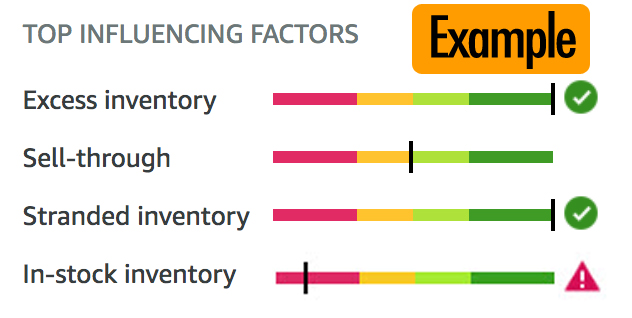
The shopping centre is changing. Urbanization is reducing the number of people who live in large houses, making it more essential to provide safe and comfortable environments for people to shop and work. There are many factors that have contributed to the changing role of the mall, such as the growing middle class, changing demographics, and technology's impact on them. This article will discuss the evolving role of the mall and the evolution of vertical and open-air malls as well as the impact of technology.
Shopping malls are changing their role
Shopping Malls' changing role

Vertical malls evolve
Vertical Malls in Shopping Centers: Evolution
Technology has an impact on malls
The effect of technology on shopping centres is increasing. CBRE's recent study found that shopping centers will more often be used as "mixed use destinations," meaning they can also be used for educational, medical, and leisure purposes. These shopping centers will become experiences. And technology will play a major role in this transformation. This is especially relevant as holiday shopping season draws near. The study will investigate how technology can help enhance the offline shopping experience.
Evolution of open-air shopping malls
Open-air shopping malls have been evolving with American society's changing demographics. Malls are a safe and convenient option for people who live in tight spaces due to increasing urbanization. Additionally, growing middle class populations seek out environments that provide the convenience of walking to work, rather than requiring a car. These trends lead to the natural evolution of open air shopping malls.

Impact of open-air malls in New York City
The recent pandemic of COVID-19 has had a mixed impact on New York City's retail market. It has resulted not only in lower revenue for large retail sectors, but also growth for essential businesses. Manhattan has seen the greatest impact, with foot traffic falling by 90 percent in the beginning and remaining below 50 percent since pre-pandemic. In addition, a mall's occupancy rate has dropped, and public health concerns and pandemic-related shutdowns have reduced foot traffic.
FAQ
What about orders greater than $25?
Most major websites let you order items without shipping charges. Some websites offer free shipping for certain items. You will need to spend at least $25 in order to be eligible for free shipping. Many websites automatically apply free shipping to all of your orders. Other websites require you to enter the code "SHIPFREE" during checkout.
How can I make smart shopping online?
Smart shopping online allows you to save money and not compromise on quality. Here are some suggestions:
Start by shopping around. Compare prices and see which store offers the best deal.
Consider using Ebates, which is a cash-back app. They function in the same manner as cashback programs offered at physical shops. The amount that you spend on their app will earn you points. These points can be used to redeem for gift cards and discounts.
Look out for promo codes. You can find them on sites like RetailMeNot.com. Enter the code at checkout to get your savings. All savings will be applied automatically.
Don't forget clearance sections! There are often amazing deals available on high-end brands at reduced prices.
Why is it important that you make a shopping plan?
A shopping list serves one purpose: to remind you of what you need for grocery shopping. It helps you avoid running around the store looking for items you forgot. A shopping list makes it easy to find items if it is not in the right aisle.
A shopping list can also help you save money. You can save money by having a shopping list.
Can I buy clothes online and return them?
Absolutely! It's actually easier than ever to order clothing online. All major retailers offer free returns. Simply print the label and return it to us.
But, you won't get a refund until the item arrives. If you aren't satisfied with the product for any reason, you will need to return it.
Statistics
- A report from the U.S. Census Bureau found that in the first quarter of 2022, an estimated $250 billion was spent on retail e-commerce sales.1 (thebalance.com)
- The tax is automatically added once you click the checkout button, so factor in an additional 20% when looking at the product page. (makeuseof.com)
- Beyond that, you'll be liable for a 25% import tax. (makeuseof.com)
- Your Online Purchases 79% of Americans purchased goods and services online in 2018, which is expected to exceed 90% in 2023. (meetfabric.com)
External Links
How To
How to shop online safely
Online shopping can be one of the most convenient and cost-effective ways to purchase goods or services. However, online shopping comes at a high cost. Online shopping has many advantages, but there are also risks. The biggest risk is identity theft. Identity theft is the biggest risk. Identity thieves can use your personal information (name, address and credit card number) in order to steal money or make fraudulent loans against you. They then sell your stolen information on the black market. If you want to stay safe while doing business online, here are some tips to keep in mind:
-
Secure websites are recommended. SSL encryption is a free service offered by most online stores to protect customers' data. It means that any information entered onto their website such as names, addresses and phone numbers is encrypted so that only you have access to it. It blocks anyone from seeing the information you enter. It is important to verify that an authorized CA has issued a valid certificate before you shop online. Look for the green padlock icon next to the URL bar when browsing.
-
Keep your password secret. When you first sign up for a new account, you usually receive an email asking you to confirm your email address and/or username. These credentials should not be shared with anyone. Don't keep them in your wallet. They could also be used to access your accounts if you lose your wallet. Instead, store them on your computer. Also, it is important to change passwords every three months.
-
Keep track of all your orders. If you're sending items to yourself or others, make sure you keep track of where you send those packages. Many people fall for the trap of thinking they have sent something to them, but in reality it was sent from another place. Before paying for shipping, make sure you verify the tracking number. Always get proof of delivery before you ship anything. If you're unhappy with the service received, please contact the company immediately.
-
It is important to know who you are dealing. Many websites will require you to give sensitive information, such as your full name and date of birth, Social Security Number, and Bank Routing number. They use these details to identify you so they should be cautious about what information they ask for. Google "what's the need?" to determine if a website has this information. You'll find many solutions.
-
Pop-up windows are a danger. Many websites will bombard you daily with pop-ups offering special offers, discounts, and other products. Some ads are legitimate but some are intended to trick users into divulging private information. For example, a fake antivirus program might request your credit card number, social insurance number, and banking information. Avoid being tricked by clicking on links that look suspicious.
-
Beware of phishing scams. Phishing scams use hackers to pretend to represent reputable companies and trick consumers into providing their financial information. Phishers send emails that look like they're from retailers and banks. These emails encourage users to log-in to update their account information. Hackers can gain control of your finances once your information is given. Hackers could even take over your bank accounts or transfer funds from one account to another. You have many options for identifying a scam email, including How to Spot Phishing Scams.
-
Do your homework. Make sure you read the fine print before agreeing to a deal. Clear and simple terms and conditions must be included in any contract that you sign. It is important to carefully read the terms and conditions. It is important to avoid hidden fees or charges in order to save money.
-
Take the time to shop around. Don't be afraid to shop around. Compare prices across many different websites until you find the best price. When ordering multiple items, you can also compare shipping costs. Shipping rates vary greatly depending on which website you use. For fast shipping, it's worth paying an extra.